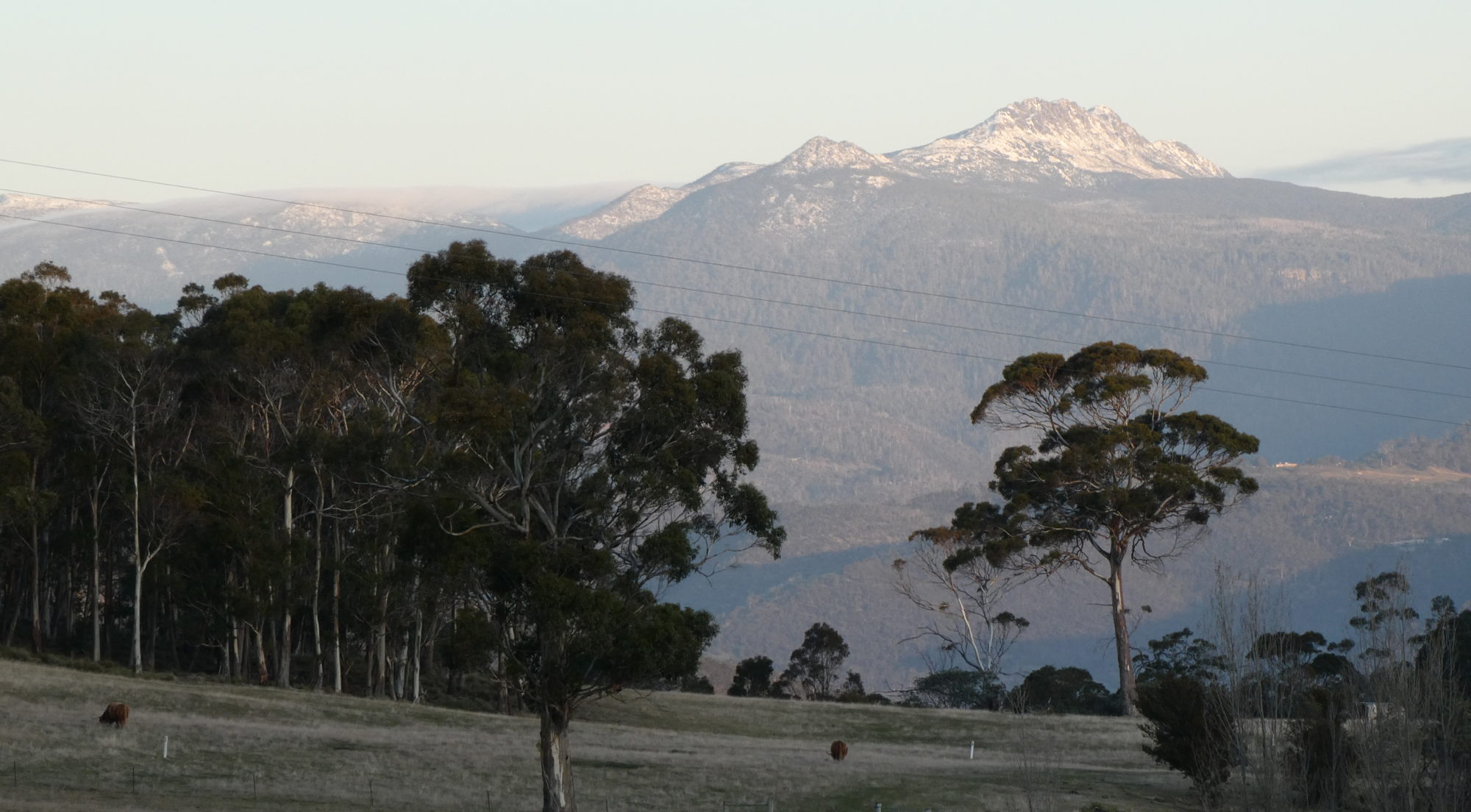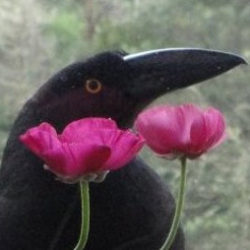
Francis Bacon and Environmentalism
Francis Bacon, a contemporary of Shakespeare, was the foremost exponent of the Scientific Method of the early modern era. Bacon has been called the father of empiricism. His works argued for the possibility of scientific knowledge based only upon inductive reasoning and careful observation of events in nature. Most importantly, he argued this could be achieved by use of a sceptical and methodical approach whereby scientists aim to avoid misleading themselves. A great legacy of Bacon was the description, in his Novum Organum (1620), of “Idols of the Mind”: widely accepted myths which commonly obstruct the path to correct scientific reasoning.
Four centuries later Bacon’s idols are still with us. Scientists are still kidding themselves about how much they know and how well they know it. There are still many convenient lies with which researchers delude themselves that they are probing reality when all they are doing is advancing a career. In the Halls of Academe this never mattered much; the real advances came from Bell Labs, Big Pharma and the military.
But it matters now. Shoddy science has joined forces with millenarian doomsayers and, as a result, entire nation states are abandoning well established, functional energy policies in favour of pie-in-the-sky renewables in order to save the planet.
The most egregious example is to be found in fluid dynamics, now the exclusive province of mathematicians who have little regard for Bacon’s “careful observation of events in nature”. It is not really a science at all and yet the public sees it as such and accepts without question its divinations about the state of the planet’s atmosphere in coming decades. The fluid continuum is a myth. Global climate predictions are based on this myth; they are not science.
Energy policy self-harm is not the only consequence of the new environmental militancy. Other Baconian Idols are the myths of Natural Balance and the Sanctity of Wilderness which are equally pernicious.
The world is believed to be permanently in a steady-state condition, a condition of Natural Balance. Any observed variation in environmental quantities such as species numbers or global temperature must therefore somehow be Man’s handiwork and evidence of Man’s carelessness and greed. In fact statistical analysis shows that species numbers and climate measurements vary randomly in quasi-cycles which tend to be longer than a typical research program. Signal processing engineers call this “red noise”. Over short time intervals, red noise cycles often look like linear trends. This was first noticed by ecomomists in the 1970s and termed “spurious regression”. Science has still not caught up.
Examples of Bacon’s Idols are legion and proliferate wherever scientists are funded to carry out research for ideological reasons. The Sanctity of Wilderness presumes that unmanaged forest will, of itself, attain a higher plane of existence and to remain in that state indefinitely. In my own state, Tasmania, an island the size of Wales, one third of the land area has been set aside as an oxymoronic “Wilderness Heritage Area”. Wilderness is seen as the highest good even when this view conflicts with the safety and prosperity of the community.
This is particularly true of attitudes to wildfire. In January 2016 wildfire burned through thousands of acres of the Central Highlands. A visitor to the area reported on local media that “We need for people to understand that this is not a natural event”. A local ecology professor was also upset by the loss of local flora: “They’re killed by fire and they don’t come back … It’s a species that would have been around in the Cretaceous period. It’s regarded as one of the main reasons for listing Tasmania as a world heritage area.” Another professor said: “This is bigger than us. This is what climate change looks like, this is what scientists have been telling people, this is system collapse.”
A nearby weather station, Liawenee, has been operating continuously in this area since the 1920s and its records show no evidence whatever of any significant change in either temperature or rainfall in recent times. These statements were hysterical nonsense. Are we really expected to believe that, in the 65 million years since the Cretaceous, after numerous ice-ages, cosmic impacts and major bushfires, conditions were suddenly so bad in 2016 that these species were “gone for good”? Are we to believe that the alpine herbfeld of the Central Highlands had never burned before?
Wildfire is a natural phenomenon in the Tasmanian landscape and this was so for millions of years before the arrival of humans. How is it that these people, who appear to understand so little about the natural world, now presume to own it?
When left to itself, eucalyptus forest burns every 40 to 200 years. The longer the interval between fires, the more intense is the fire when it finally occurs. Indeed one species, the Mountain Ash (E. regnans), the world’s largest flowering plant, requires these less frequent, more intense burns to propagate itself. It is commonly assumed that Tasmania was mostly wilderness prior to European arrival but that is not the case. The indigenous people continually burnt their country in order to maintain grazing lands for game. Early navigators such as du Fresne reported numerous such fires in what are now regarded as wilderness areas (Gammage: The Biggest Estate on Earth).
Bacon’s Idols have consequences. In our misguided worship of Wilderness, we Tasmanians are creating the conditions for a major disaster. A bush fire in 1967 killed over 60 people and burned 600 homes in Hobart. The time is now right for such a disaster to recur and it is likely to be worse than in 1967. Environmental concerns have lead to inadequate fire hazard reduction measures made worse by the spread of suburbia into the bush. Hobart now has over 70 km of city-bush interface.
Those leafy suburbs will become a disaster area once again, thanks to the power of Bacon’s Idols over the minds of policy makers. Their expert advisors, the university ecologists quoted above, will have much to answer for when this holocaust finally does occur.
They will, no doubt, blame climate change.
John Reid is a retired physicist living in Tasmania. More information on Bacon’s Idols, non-physical climate models, red noise and spurious regression can be found in his forthcoming book “The Fluid Catastrophe” (Cambridge Scholars Publishing Limited).
10 THOUGHTS ON “FRANCIS BACON AND ENVIRONMENTALISM”
William
JANUARY 15, 2019 AT 1:10 AM
In Novum Organum, 1620, Sir Francis Bacon describes the four Idols that are roughly equivalent to devotional bias held so strongly the person just assumes them to be true; the one dedicated to academia is the, Idol of the Theater:
“Idols of the Theater are those which are due to sophistry and false learning. These idols are built up in the field of theology, philosophy, and science, and because they are defended by learned groups are accepted without question by the masses. When false philosophies have been cultivated and have attained a wide sphere of dominion in the world of the intellect they are no longer questioned. False superstructures are raised on false foundations, and in the end systems barren of merit parade their grandeur on the stage of the world.” — As Quoted by Manly P. Hall in, The Four Idols of Francis Bacon.
Stuart Bryce
JANUARY 11, 2019 AT 9:57 PM
Yes, it’s amazing what drives science these days with scientists funded to carry out research for ideological reasons. I see fear as a major driver, particularly when it comes to so-called rising sea levels, citing Pacific islanders as potential victims. Recent volcanic activity adversely affecting the level of chlorofluorocarbons in the atmosphere doesn’t seem to rate a mention. I look forward to the release of your book John.
Neil Wallace
JANUARY 11, 2019 AT 4:23 AM
Back in 2009 I attended a company conference in Marysville. Being from interstate I wasn’t really sure exactly where it was being held so I pulled over to make a call. While stopped under some HUGE gums the first thought that went though my mind was that the place was a fire waiting to happen. There was gum tree litter everywhere on the ground and in the trees. Was soon to be proved right by the gums due to the inaction of council to keep them under control.
John
JANUARY 11, 2019 AT 2:56 AM
The whole idea that the environment will remain in some kind of perfect state until mankind does something is utter nonsense.
I grew up on a farm with a creek running through it. Even at that time there were anabranches that were cut off from the main flow. What’s more, over time tree branches fell into that creek, the larger ones diverting the water, which sometimes meant the development of new channels, and the smaller ones sometimes causing silt to build up and again change the creek’s course.
Even without mankind’s involvement erosion occurs, trees grow and they die, and changing weather patterns might be advantageous to some species and detrimental to others.
The myth of a stable environment is as as foolish as the myth of stable (and somehow perfect) temperatures.
Peter Bysouth
JANUARY 11, 2019 AT 2:48 AM
John, Would you even try to have it printed in the Mercury?
admin
JANUARY 11, 2019 AT 4:30 AM
I have sent it off to the Mercury. Will they print it because it is controversial or will they just wimp out?
Aert Driessen
JANUARY 11, 2019 AT 2:09 AM
Pity but never mind. I am more concerned about the corruption of the Scientific Method than I am about my rising power bills. I see so many scientist make ludicrous statements on this issue, which Science permits, as long as one defends/debates their point of view. These scientists refuse to do that. Keep up the good work.
Aert Driessen
JANUARY 11, 2019 AT 1:53 AM
Great read John and please tell us when your book is published. In your last para you say that some ecologist will have much to answer for when the next fire holocaust hits Hobart. But how will that be done? I have just read that Emeritus Professor Kurt Lambeck AO has been awarded the 2018 Prime Minister’s Prize for Science for his significant contribution to global geodesy, which underpins GPS technology. He is also President of the Australian Academy of Science. Yet he and many other members of the AAS, plus hordes more in academe have made ludicrous assertions on the dangers of man-made global warming aka climate change. Many of these, particularly the older scientists have had distinguished careers. But how do we hold them to account for their anti-science activism, and how do we evaluate their contributions to science for not speaking out against the on-going white-anting of the Scientific Method, and for not retracting the ludicrous statements they made in the past and, for some, continue to make? As David Hurley reminded us when accepting his nomination for next GG of Australia, the standard that you walk past is the standard you accept. I see this situation as many personal and individual tragedies adding up to a national tragedy. But I come back to my question. How do we hold these people to account when we are mugged by reality?
Robert DELBOURGO
JANUARY 11, 2019 AT 1:41 AM
Did not Trump say much the same about the recent Californian wildfires, blaming part of the problem on lack of burnoffs during cooler and more settled weather? Instead we got the screeching of environmentalists blaming “climate change”. It will take a mighty effort to convince the public otherwise. Only a huge energy crisis will wakethe people out of their present torpor I am afraid.
Jennie Reid
JANUARY 11, 2019 AT 12:38 AM
There’s an Australian fiction writer by the name of Rachael Treasure who would agree wholeheartedly with the above blog post. In her book “The Cattleman’s Daughter” she describes how the cattlemen who had been managing the high country in the Australian Alps for close on 200 years were kicked out, resulting in catastrophic bushfires a couple of years later. A Royal Commission into the fires came to the conclusion that managed grazing by the cattlemen had in fact reduced the risk and severity of perfectly natural fires. Although fiction, it’s based on fact. You may remember the cattlemen riding to Victorian parliament a few years ago.

